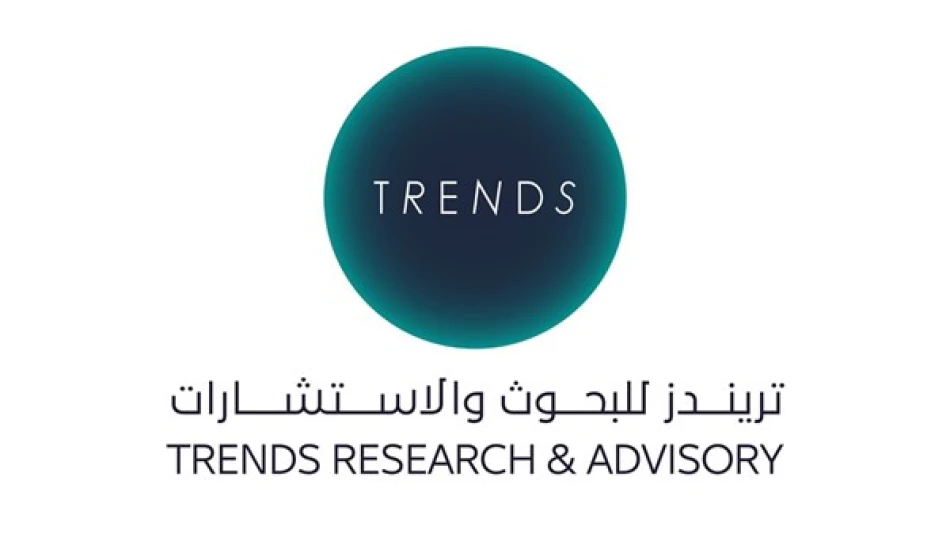
Trends Unveils Winners of Trends Hub Scientific Research Award
UAE Research Hub Crowns Winners in AI Ethics Competition, Highlighting Regional Focus on Responsible Technology
The Trends Research & Advisory Center has announced winners of its second annual "Trends Hub for Scientific Research" award, with three groundbreaking studies on artificial intelligence ethics taking top honors from a competitive field of 82 submissions. The results underscore the Middle East's growing emphasis on responsible AI development, particularly around youth digital literacy, mental health detection, and inclusive education.
Ethical AI Takes Center Stage in Regional Research
Researcher Shawkat Barakat claimed first place with a comparative analysis examining how ethical versus unethical AI-driven algorithmic allocation affects filter bubbles and critical thinking among Arab youth across different cultural contexts. This study directly addresses one of the most pressing concerns in the digital age: how recommendation algorithms shape young minds and potentially limit exposure to diverse perspectives.
The focus on algorithmic ethics reflects broader global conversations happening in Brussels, Washington, and Beijing about AI governance. However, Barakat's research specifically examines these impacts within Arab cultural frameworks, filling a crucial gap in predominantly Western-focused AI ethics literature.
Mental Health and AI: Breaking New Ground
Dr. Iman Ali Al-Mohammadi secured second place for her research on using AI technologies to detect suicidal ideation among individuals online. This work represents a significant advancement in digital mental health surveillance, particularly relevant as social media platforms face increasing pressure to identify at-risk users.
The timing is critical. With mental health challenges rising across the Gulf region, particularly among young populations, AI-powered early detection systems could provide scalable solutions where traditional mental health infrastructure remains limited. Similar initiatives in countries like South Korea and the UK have shown promising results in reducing suicide rates through early digital intervention.
Inclusive Education Through AI Innovation
Third place went to researcher Iman Al-Mutawa for developing an AI-based educational model designed to integrate individuals with special needs into mainstream education. This research addresses a significant challenge across the Middle East, where inclusive education infrastructure often lags behind international standards.
Her work aligns with the UAE's broader vision of becoming a global AI leader by 2031, particularly in sectors like education and healthcare. The model could potentially be scaled across the region, where similar demographic and educational challenges exist.
Investment in Regional Research Talent
The monetary awards—$5,000 for first place, $3,000 for second, and $2,000 for third—represent more than symbolic recognition. Winners also gain access to research fellowships and priority enrollment in the center's training programs, creating a pipeline for sustained AI research development in the region.
This investment strategy mirrors successful models in Singapore and Israel, where government-backed research initiatives have created thriving AI ecosystems. The UAE appears to be positioning itself as a regional hub for ethical AI research, potentially attracting talent from across the Middle East and North Africa.
Strategic Implications for Regional AI Development
The competition's focus on practical applications—rather than purely theoretical research—suggests a pragmatic approach to AI development. Each winning study addresses real societal challenges while maintaining ethical frameworks, a balance that many Western tech companies have struggled to achieve.
For investors and policymakers, these research directions indicate where the region sees AI's most promising applications: youth development, mental health, and inclusive services. This focus on human-centered AI could differentiate Middle Eastern approaches from the more commercially-driven models dominating Silicon Valley and Shenzhen.
The competition's success, with 82 submissions in just its second year, signals growing research capacity in the region. As geopolitical tensions reshape global AI development, the Middle East's emphasis on ethical applications could position it as a trusted partner for international AI collaboration, particularly with European partners prioritizing similar values.
Most Viewed News

 Layla Al Mansoori
Layla Al Mansoori






